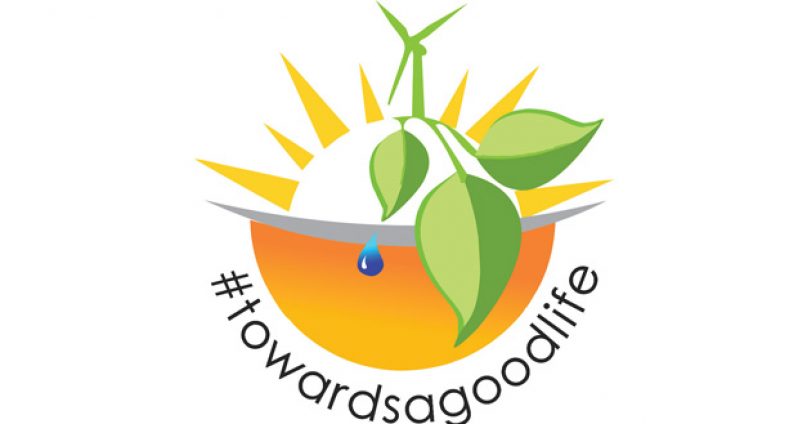Balancing economic growth and environmental protection
By Clement Henry
SUSTAINABLE development has been central to political rhetoric on the environment. Its professed goal is to improve living standards and people’s quality of life, both now and for future generations.Sustainable development is formally defined as “development that meets the needs of the present without compromising the ability of future generations to meet their own needs.” (The Brundtland Commission Report: Our Common Future, 1987).
Sustainable development is a noble goal that is particularly relevant to achieving the good life in a green economy. The challenge with sustainable development is that few individuals and countries are able to walk the talk. That is why Brundtland’s admonition in the opening quote is an important one.
Not all are in favour of sustainable development and greening the economy. Some vituperatively charge developed countries with hypocrisy for advancing the green agenda after they would have amassed wealth from destroying the environment. Others claim that the green agenda is aimed at inhibiting the development thrust of developing countries.
If we do not succeed in putting our message of urgency through to today’s parents and decision makers, we risk undermining our children’s fundamental right to a healthy, life-enhancing environment. Unless we are able to translate our words into a language that can reach the minds and hearts of people young and old, we shall not be able to undertake the extensive social changes needed to correct the course of development. – Gro Harlem Brundtland
Therefore, developing countries like Guyana should wait until they are fully developed before embracing the green agenda.
Even in Guyana, the economic-growth-versus-environment conflict is played. In a 2013 survey of residents on the Lower East Coast Demerara, we sought information on their perception of religion, science, and the environment. In one of the queries, respondents were asked to share their views on whether (1): Protecting the environment should be given priority, even if it causes slower economic growth and some loss of jobs. (2): Economic growth and creating jobs should be the top priority, even if the environment suffers to some extent.
A total of 191 persons responded to the query. The analysis indicated that 53.9 per cent were in favour of sacrificing the environment on the altar of economic growth and job creation (see chart  below).
below).
In many settings around the world, there is clearly a trade-off between current economic growth and growth in the future. However, scientific evidence points to the inescapable nexus between sustainable economic growth and a healthy environment, and has stressed the importance of balancing our economic and environmental objectives in the short term, in order to sustain our development in the long term. In a nutshell, long-term economic growth depends on the sustainable use of renewable resources. Overuse of these resources for short-term gain can erode prospects for individual, community, and the nation’s long-term economic future. It means therefore that all levels of society must see themselves responsible for balancing economic activities with sustainable environmental practices.
Guyana is well endowed with natural resources: fertile agricultural lands; bauxite, gold and extensive tropical forests. Guyana generates a large share of its economic activity from the natural resources sectors. Because of this, local policy makers will constantly be confronted with the challenge of balancing growth with environmental preservation. This decision must be ‘evidence-based’ and the evidence must be available to citizens to inform their action.
While information on the economy is available, the same cannot be said about data on environmental indicators. Moreover, when data on environmental indictors are available, they should be matched with economic data, so that we can comprehend the full impact of our economic decisions and practice on the quality of life.
Finally, to sustain economic growth, we need to develop and implement environmentally friendly policies and strategies continually. The challenge for governments is to create development strategies that incorporate values of environmental sustainability while increasing economic growth.
Comments can be sent to: towardsagoodlife@gmail.com
[box type=”shadow” align=”aligncenter” ]CLEMENT HENRY is a Research and Development Specialist. Mr. Henry graduated from Andrews University with a Bachelors of Arts Degree (cum laude) in Theology, emphasis in Public Health; University of Guyana with both a Post Graduate Diploma and Masters Degree in Development Studies. Mr Henry is a Ph.D. Candidate at the Institute of International Relations, University of the West Indies St Augustine Campus. His doctoral dissertation (already submitted) is entitled ‘A Theoretical and Empirical Analysis of the Dimensions of Human Security: the Case of Guyana’. He is currently the Project Manager of the Citizen Security Strengthening Programme. His publications include: “An Analysis of the Effectiveness of Foreign Aid Flows to Guyana’ in Selected Essay in Contemporary Caribbean Issues.
[/box]




.png)









